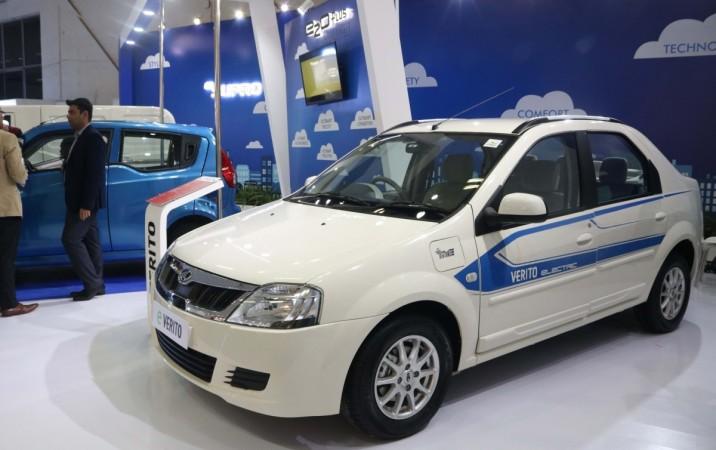
Taking a cab in India now will not mean just a car but possibly an electric car in the future. Mahindra's bullish decision to introduce electric cars for shared mobility could mean a serious threat to the global oil industry.
India's carmaker giant Mahindra & Mahindra said on Thursday that it would expand aggressively its electric car business and will make it available to many people through big car aggregators like Ola and Uber, Economic Times reported.
If the bullish decision to bring in more electric cars and taxis through such giant car aggregators comes soon, that could lead to a steep fall in fuel demand in India. India imports about 80 percent of its oil from the foreign countries. So, a fall in Indian oil demand could imply a further fall in the oil prices globally.
India being one of the largest oil importers, a fall in demand of such a key commodity in India could deal a huge blow to global oil demand.
"We will see a clear shift to electric cars. It's driven by legislation so electric cars are coming, it's not a niche anymore," Wilco Stark, vice-president for strategy and product planning at German car maker Daimler, told Reuters in an interview.
Oil, a key commodity saw a sharp fall in the prices globally since 2015 and is a major reason to keep the global inflation near to the ground. The oil glut last year led to the fall in oil prices at around $20 per barrel from about $100 per barrel last year. Although, oil prices are now picking up, however, it will not pick up as much as $100 per barrel anytime sooner. Big economies around the world still continues to suffer from low inflation.
Not just the oil industry, this could also suggest a fall in fuel-led car demand.
Scroll down for video

"For electric vehicles to take off they must become competitive against the gasoline and I believe that is around the corner given the falling battery costs. If you as an industry are going to depend on government for subsidies, it will never survive," said Anand Mahindra, managing director of Mahindra and Mahindra.
The carmaker industry cannot rely on government subsidies to support according to Mahindra and Mahindra. Nevertheless, the goods and services tax is fixed at 12 percent and the industry also gets an added benefit of a waiver from road tax. Niti Aayog, the most influential government think-tank has recommended government to lower taxes and interest rates for loans on electric vehicles, Reuters reported.
The electric vehicles demand is quite low in India now, but is expected to grow significantly as the company now shifts focus to manufacture more electric vehicles and plans to engage with the car aggregators more aggressively now.
Mahindra and Mahindra tied up with Ola last year in an attempt to not just boost sales but also to design the future of its vehicles. That move will now yield more results and ease the company's attempt to enter the ride-sharing business with its electric cars in the future.
But, the company assured that they will be different from the giant electric carmaker Tesla.
"We have just committed that we are working on high end cars. Tesla was the pioneer, so Mahindra should develop its separate niche. There is no point in copying anybody, you have to differentiate yourself. We are spending significant amount of money on electric. We are ahead of the game," added Mahindra.













